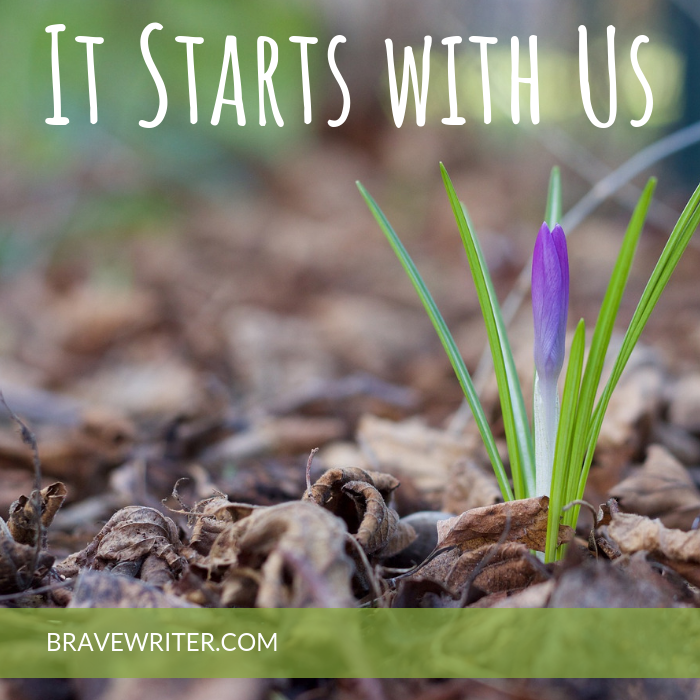It Starts with Us

We say we want a more tolerant world—or at least, we want more people to tolerate us. We want to be heard, known, respected, and understood. We want space to have our ideas regarded as logical, important, and relevant to the conversation.
When I say I’m a home educator while I’m spitting sunflower seed shells onto the turf as I watch my 10 year old up to bat, I hope that the public school mom sitting next to me will say, “Oh, tell me about that! I’ve heard of homeschooling but I don’t really know what it’s like. Do you enjoy it?” (Wouldn’t that be awesome?)
I don’t want her to say, “Oh my! You’re amazing. I could NEVER be with my kids 24/7. How do you do it?”
I also don’t want her to say, “Homeschool. That seems really risky. How do your kids ever make friends? Aren’t you worried they won’t be ready for college?”
Worse, I never want to hear: “I oppose homeschool. You are ruining public education and your children. I’ve been told homeschooled kids are not prepared when they finally attend school. All the homeschooled kids I know are weird.” Ouch.
And yet.
I’ve heard all of those, including the cheery first one of genuine warmth and curiosity!
Because you and I are ambassadors for an unconventional educational choice, we’re defensive. I feel like I’m supposed to represent homeschooling well. I’m required to defend its importance and success and how it doesn’t harm anyone else’s right to educate how they wish. I defend my kids as ordinary garden-variety human beings who can make friends and are able to learn information.
That defensiveness, however, twists my sensitive soul into a little prune-ish pretzel, shriveled and tight. When I’m safely ensconced within the walls of my homeschool enclave, I’ve attacked public education with snark and flippant language. Behind the backs of my parent-friends who choose traditional school, I’ve made not-tolerant comments—you know, the kind that assign a child’s struggle (whatever it may be) to a “poor” school choice rather than showing empathy for the struggle no matter the origin.
I do this all while I hope that my public school friends will tolerate and respect my choices!
It’s maddening to defend home education. But maybe it’s also maddening to be the person who went along with the usual way of things (school) and suddenly is confronted with all this intentional choice that is about “not-school.” Imagine how that might feel—your own go-along to get-along way of life is being rejected by someone who seems sane and interesting. This poor “school parent” is now also defensive and never expected to have to be!
What could we do in that situation?
Maybe we could try this…
“Oh, tell me about public school for your kids! I don’t really know what it’s like since my kids don’t go. Do your kids enjoy it? What are some of the fun things they get to do?”
If we could drop the feeling of being threatened by school and simply enter into the experience on all sides: home, private, public, religious, boarding…whatever version you are encountering—what would we learn?
Education takes lots of forms. To create space for all of them, it helps to remember we are on the same team—rooting for everyone’s children to become good citizens, kind people, and well educated adults.
Maybe it starts with us.


















